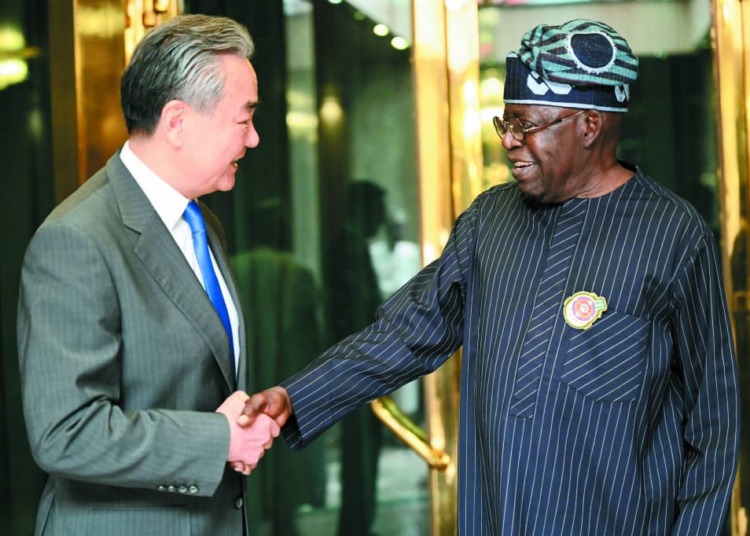 The Federal Government of Nigeria has announced an intensified security partnership with the People’s Republic of China, focusing on local arms production and military training as part of efforts to tackle terrorism and other security challenges both within and outside the country’s borders.
The Federal Government of Nigeria has announced an intensified security partnership with the People’s Republic of China, focusing on local arms production and military training as part of efforts to tackle terrorism and other security challenges both within and outside the country’s borders.
The Minister of Foreign Affairs, Yusuf Tuggar, made this known during a press briefing after President Bola Tinubu met with China’s Foreign Minister, Wang Yi, at the Aso Rock Villa in Abuja on Thursday. Wang Yi is currently on a four-nation tour across Africa, which includes stops in Namibia, DR Congo, Nigeria, and Chad.
Tuggar emphasized that collaborating with countries like China would enable Nigeria to domesticate the production of military equipment, reducing reliance on external procurement that often faces delays due to regulations. “We want to work with countries like China in domesticating production of military equipment, both kinetic and non-kinetic,” he said.
This move comes after the Chief of Defence Staff, General Christopher Musa, highlighted that arms procurement had become a significant bottleneck for the military, slowing down the delivery of critical equipment for frontline troops. General Musa also mentioned that the government is exploring ways to recruit skilled Nigerians for local firearms production.
Tuggar reaffirmed that Nigeria aims to solve its security problems independently, rejecting the idea of relying on private military companies. He underscored Nigeria’s role as a leader in West African security and expressed confidence in the country’s ability to address regional challenges with China’s partnership.
In line with this, Nigeria and China both rejected external interference in African security affairs, with Wang Yi stressing that African nations should lead their peacekeeping and counterterrorism initiatives. China also pledged a CN¥1 billion military assistance package for Africa, which includes training 6,000 military personnel and 1,000 police officers across the continent.
During the visit, President Tinubu called for an expansion of the bilateral currency swap agreement, aiming to facilitate trade between the two nations. He also requested an upward review of the $50 billion China-Africa aid package to support infrastructure projects.
Wang Yi expressed China’s support for Nigeria’s potential UN Security Council seat and praised Nigeria’s leadership in regional peace efforts. Furthermore, he welcomed Nigeria’s participation in the BRICS grouping and pledged continued support for African peacekeeping operations.
The visit underscored the growing strategic ties between Nigeria and China, with both countries looking to deepen cooperation in defense, trade, and infrastructure development. China also expressed confidence in Nigeria’s economic stability and welcomed Nigeria to issue Panda bonds in China’s financial markets, providing the country with new avenues for revenue generation to support infrastructure projects, including railway modernization.